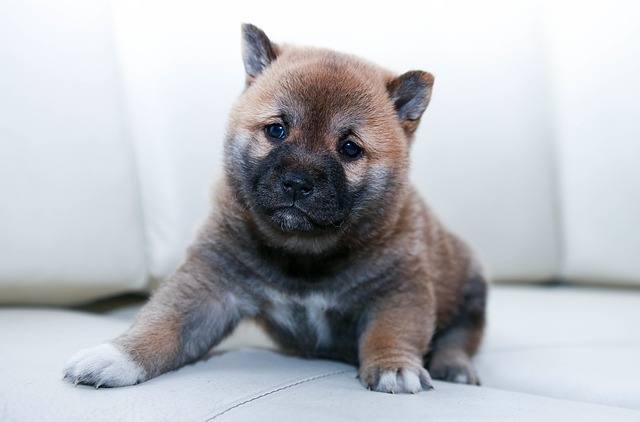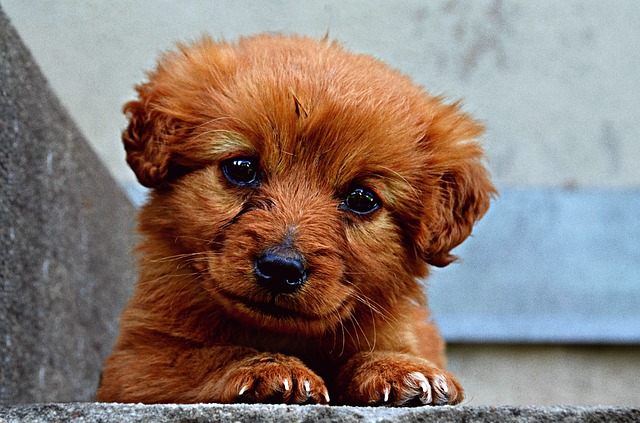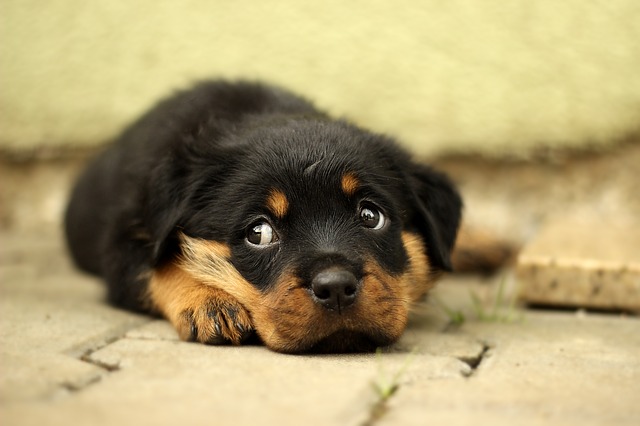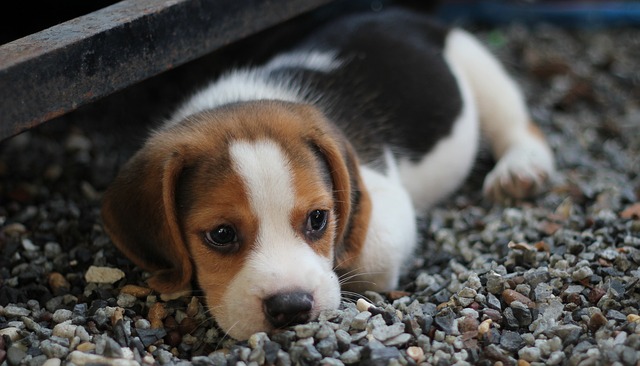Puppy nibbles may seem cute at first, until your puppy gets overexcited and her needle-sharp teeth sink into your skin. Nipping is normal puppy behavior, but it’s important to teach your puppy not to bite. Otherwise, they’re likely to grow up thinking that biting is acceptable behavior. Here are a few tips on how to stop your puppy from biting.

What’s the difference between teething, nipping, and biting?
Just like humans, puppies start life with a set of baby teeth that eventually fall out and are replaced with adult teeth. As you can imagine, that can be an uncomfortable situation. With human babies, you give them a teething ring to gnaw on. Puppies also need appropriate toys to gnaw on, and they need to be taught to gnaw on those toys instead of your hands, feet, or anything else.
Nipping is different from teething. Imagine two puppies rolling around together and playing. They’re biting each other, but not hard enough to cause pain – usually. When one puppy gets too excited and bites the other too hard, the bitten puppy will yelp and stop playing, and the biter eventually learns not to bite so hard because biting stops the fun and play.
One benefit to puppies staying with their mother and littermates longer than 8 weeks is that they have more time to learn bite inhibition through playing with their siblings. The younger a puppy is when separated from its littermates, the more help it may need learning how not to bite too hard.
When puppies aren’t properly taught not to nip, they can progress to actual biting. That can become a dangerous situation, so it’s important to teach your puppy not to nip while they’re young.

How to stop your puppy from biting
In short, your puppy needs to learn that all fun stops when they put their teeth on you. If you’re petting your puppy and she starts gnawing on your hand, immediately stop petting her and provide her a toy to gnaw on instead.
If you’re playing with your puppy and she nips you, yelp or say “Ouch!” and stop playing. Count to at least ten before you resume playing.
If your puppy likes to nip at your feet when you walk, try to carry a toy by your side when you walk and encourage your puppy to bite at the toy instead of your feet.

How NOT to stop your puppy from biting
Before we learned that positive reinforcement is much more effective, people used to punish their puppies for biting by doing things like bopping them on the nose, clamping their mouth shut, or slapping them. Punishing your puppy for biting is ineffective for several reasons.
First, it can make your puppy afraid of you, which can lead to a lot of behavioral problems including anxiety and fear biting. Secondly, negative attention still rewards the puppy with attention of some sort. Ignoring your puppy’s biting is actually a better form of “punishment” since your puppy so desperately wants your attention.

How to find good chew toys for your puppy
Since puppy teeth aren’t very strong, you want to find chew toys for puppies that are a little softer than what you might give an adult dog. Avoid hard plastic chew toys and aim for dense rubber toys instead (like the AgriChew™ or Brite Bite Brushing Stick). Rope toys are also a great option. Playing tug is a great way for your puppy to use their mouth in an appropriate manner while playing with you.

Speaking of teeth…
80% of dogs will develop tooth or gum problems by the time they reach 4 years old. It’s never too soon to start brushing your puppy’s teeth every day. In fact, the sooner you start brushing their teeth, the more likely they are to accept it as a natural part of their daily routine. Always use a soft toothbrush and toothpaste made for dogs, since human toothpaste can be toxic for dogs.
(H/T: Preventive Vet, ASPCA, PetMD)
 Toledo, United States.
Toledo, United States.